Configure VTL for Centos 7
Once it happened that I needed to test the IBS with a tape library. Everything would be fine, but there was no tape library at hand, and I really did not want to ask the customer’s friend about this. And here the idea came up about creating a test infrastructure with VTL.
There are a lot of options, but I settled on VTL from QUADStor . The advantages of this product include:
All operations were performed on Centos 7 set to a minimum
Prepare the OS (install vm tools and update all packages):
Install the necessary dependencies for QUADStor VTL :
Let's configure SELinux:
Set up FirewallD (open port 80 for http, and 3260 for iscsi):
Set up autorun and run httpd:
Download, install and run QUADStor VTL :
The concept of building objects in QUADStor VTL is pretty simple:
Some facts:
Web interface
Get access by clicking on the following link:
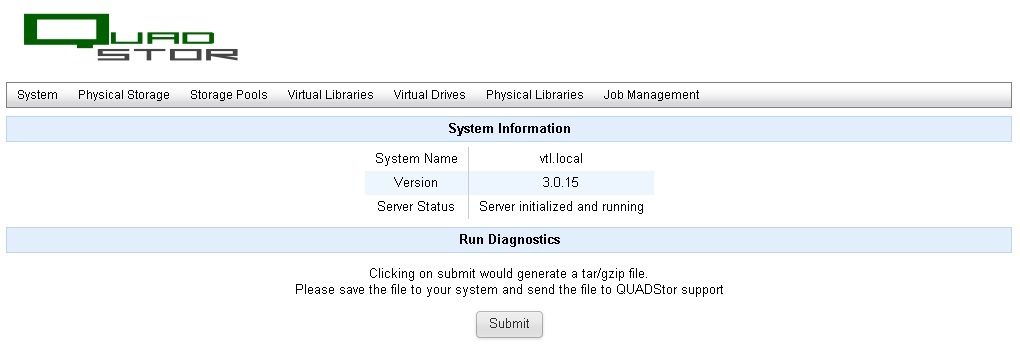
Add a disk to the Default Storage Pool
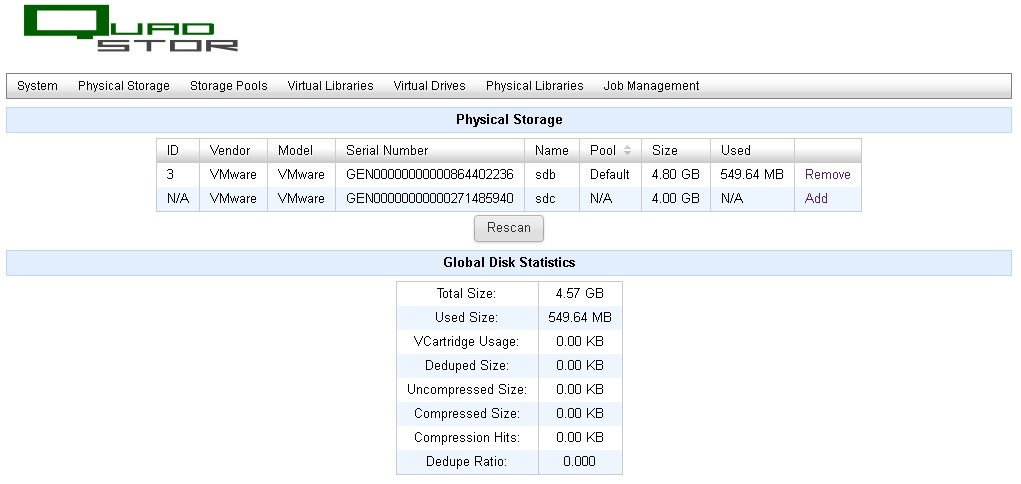
Create VTL, VDrive and VCartridge
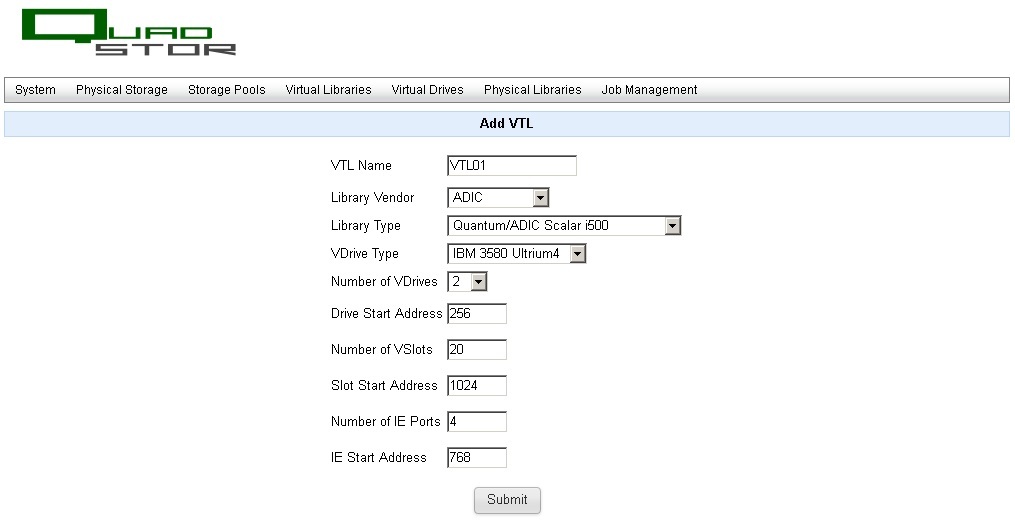
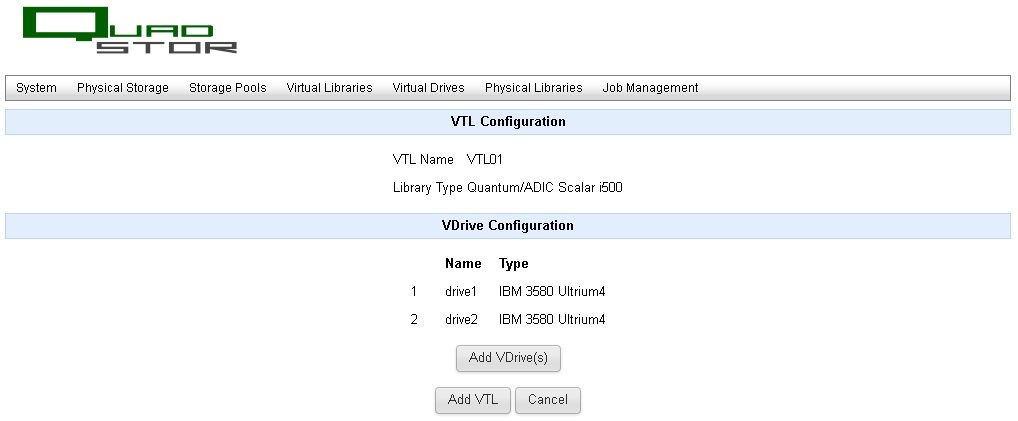
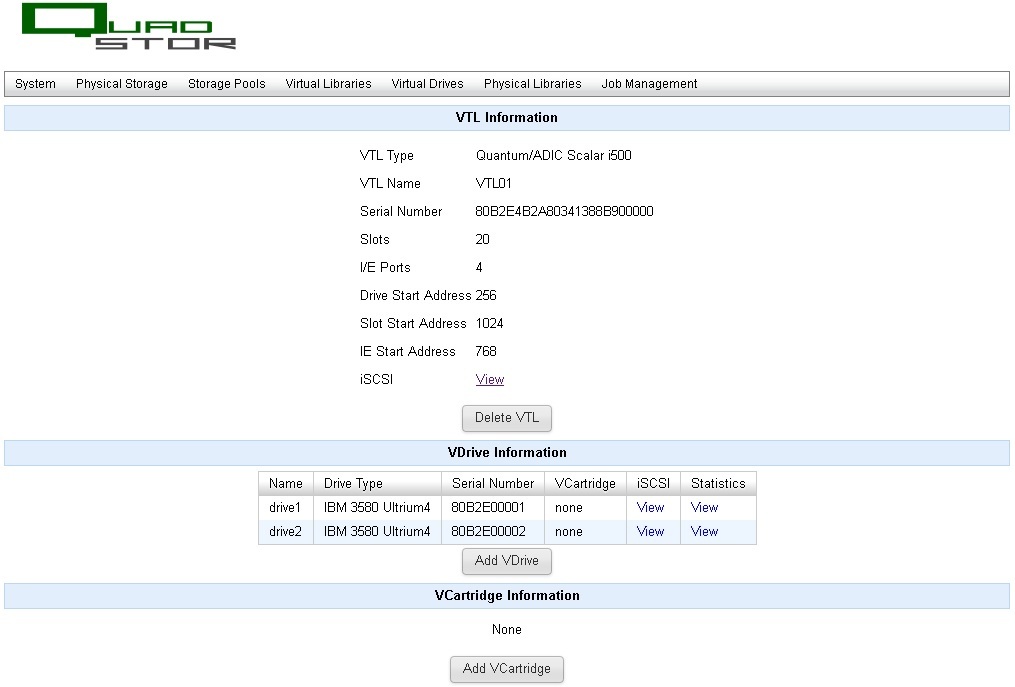
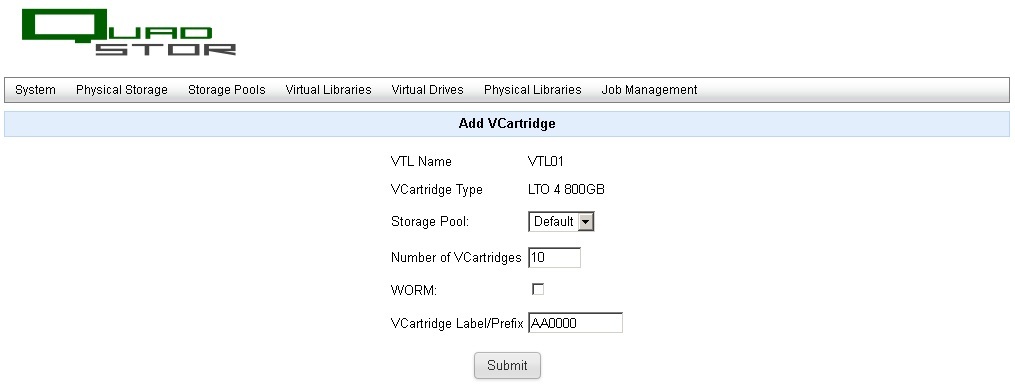
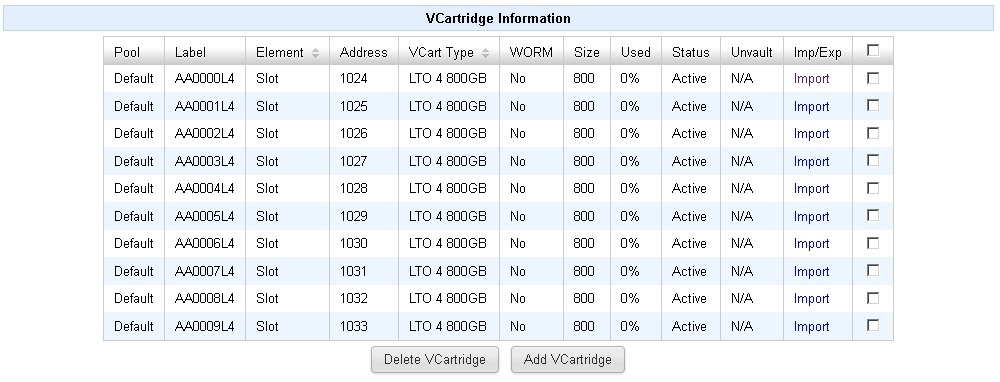
In this case, the tape size will correspond to the type of tape drive selected (Ultrium4 = 800 GB).
If you want to set an arbitrary size, you can do this by creating a file:
with content:
Size is in GB.
Restarting the service is not required, and all newly created tapes will have the specified size.
On this, the initial configuration of QUADStor VTL is considered complete . And you can connect the created VTL and drives to the hosts.
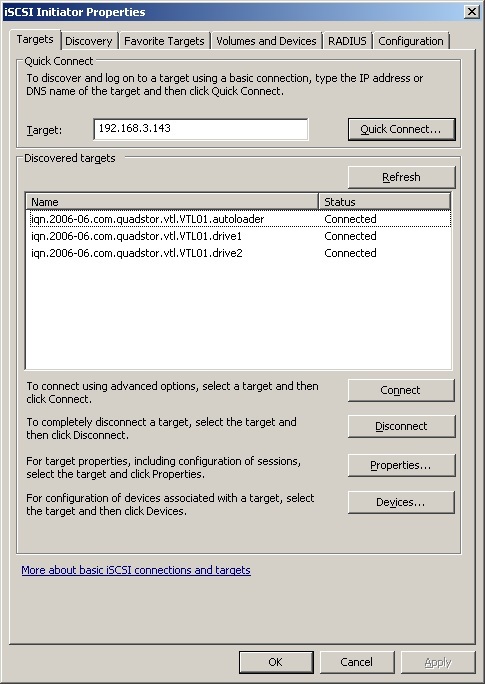
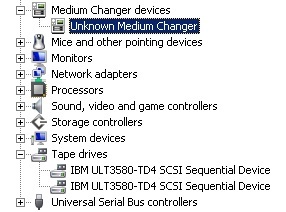
You can use it.
There are a lot of options, but I settled on VTL from QUADStor . The advantages of this product include:
- Intuitive Web interface.
- Easy to install.
- Built-in iSCSI Target.
- Ability to create tapes of arbitrary volume.
All operations were performed on Centos 7 set to a minimum
CentOS-7-x86_64-Minimal-1611.iso
Mem: 1024 MB
/ boot 384MB
/ 2711MB
/ boot 384MB
/ 2711MB
Prepare the OS (install vm tools and update all packages):
yum -y install open-vm-tools
yum -y upgrade
shutdown -r nowInstall the necessary dependencies for QUADStor VTL :
yum -y install httpd gcc perl kernel-devel sg3_utils policycoreutils-pythonLet's configure SELinux:
setsebool -P httpd_enable_cgi 1
semanage permissive -a httpd_tSet up FirewallD (open port 80 for http, and 3260 for iscsi):
firewall-cmd --permanent --add-port=80/tcp
firewall-cmd --permanent --add-port=3260/tcp
firewall-cmd --reloadSet up autorun and run httpd:
systemctl enable httpd.service
systemctl start httpd.serviceDownload, install and run QUADStor VTL :
curl -O http://www.quadstor.com/vtlextdownloads/quadstor-vtl-ext-3.0.15-rhel6.x86_64.rpm
yum -y localinstall quadstor-vtl-ext-3.0.15-rhel6.x86_64.rpm
systemctl start quadstorvtl.serviceThe concept of building objects in QUADStor VTL is pretty simple:
- Disks available to the server are added to the Pools.
- Pools create virtual tapes.
- All configuration is stored in PostgreSQL (directory / quadstorvtl / pgsql).
Some facts:
- Deduplication - inline.
- You can only add unallocated drives.
- Disk> = 4.8GB - if this is the first disk added to the Pool containing the deduplication metadata.
- Disk> = 4GB - in all other cases.
- Deduplication only works within Pool.
Web interface
Get access by clicking on the following link:
http:///vtindex.html

Add a disk to the Default Storage Pool
- Go to the Physical Storage tab.
- Click the Add link opposite the desired drive.
- Choose Default Storage Pool.

Create VTL, VDrive and VCartridge
- Go to the Virtual Libraries tab.
- Click the Add VTL button.
- Set up something simple .

- Click the “Submit” button.

- We will complete the “Add VTL”.

- Let's start creating virtual tapes - “Add VCartridge”.

- "Submit."

In this case, the tape size will correspond to the type of tape drive selected (Ultrium4 = 800 GB).
If you want to set an arbitrary size, you can do this by creating a file:
/quadstorvtl/etc/quadstor.confwith content:
MaxVCartSize=2Size is in GB.
Restarting the service is not required, and all newly created tapes will have the specified size.
On this, the initial configuration of QUADStor VTL is considered complete . And you can connect the created VTL and drives to the hosts.


You can use it.
